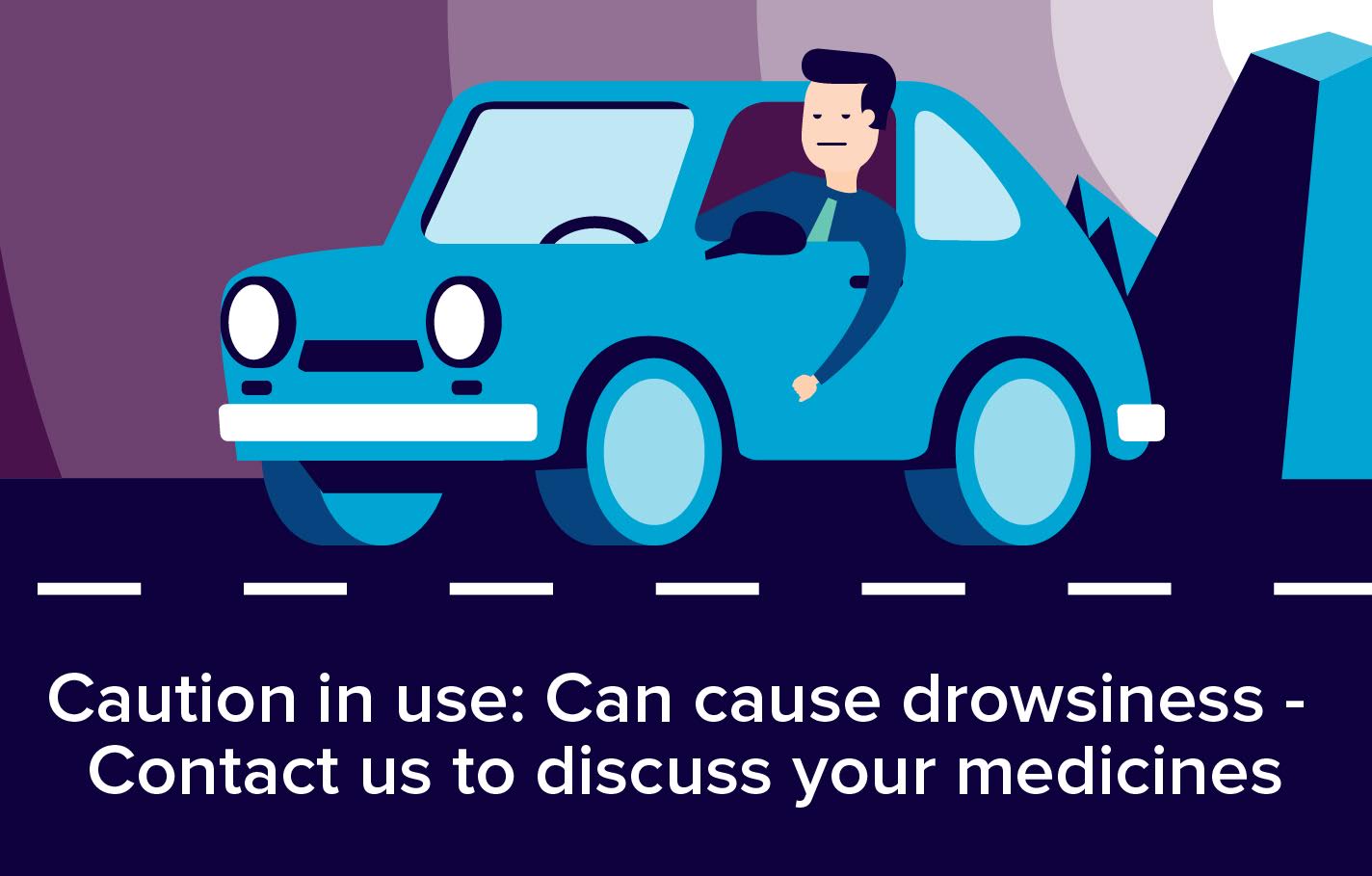Short-term treatment of insomnia (characterised by difficulty in falling asleep and frequent nocturnal awakenings). Noctamid is only indicated when the disorder is severe, disabling or subjecting the individual to extreme distress.

Why have I been prescribed Noctamid?
- Short-term treatment of insomnia (characterised by difficulty in falling asleep and frequent nocturnal awakenings).
- Noctamid is only indicated when the disorder is severe, disabling or subjecting the individual to extreme distress.
How does it work?
- Noctamid belongs to a group of medicines called benzodiazepines.
- These work by increasing the amount of a certain chemical in the brain which calms the brain down and stops the nerves firing inappropriately.
When and how do I take it?
- The tablets are taken with some liquid shortly before going to bed.
- Always take Noctamid exactly as your doctor instructed you. You should check with your doctor or your pharmacist if you are unsure.
- The duration of treatment should be as short as possible.
What’s the dose?
- Unless otherwise directed, adults should start with 1 mg Noctamid as a single dose.
- Patients of advanced age take 0.5 mg Noctamid as a single dose.
- The dose may be doubled in individual cases.
Could it interact with other tablets?
The sedative effect of Noctamid (central depressive effect) will possibly be enhanced in the case of concomitant use with CNS (central nervous system) depressant medicines like:
- Antipsychotics (neuroleptics),
- Other sleep-inducing drugs (hypnotics),
- Medicines for depression, anxiety and mood disorders (antidepressant agents, anxiolytics/ sedatives),
- Strong painkillers (narcotic analgesics) and anaesthetics,
- Medicines used in the treatment of epilepsy (antiepileptic products),
- Medicines used in the treatment of allergy which can make you sleepy (sedative antihistamines).
If narcotic analgesics are taken in combination with Noctamid, enhanced euphoria may occur. This may lead to an increased risk of mental dependence.
Herbal products should also only be taken after talking with your doctor.
What are the possible risks or side-effects?
Like all medicines, Noctamid can have side effects. Below are listed possible side effects by the parts of the body they affect and by how common they are.
Immune system disorders
Common:
- Quincke’s oedema (rapid swelling of skin and mucosa which can lead to airway obstruction).
Psychiatric disorders
Common:
- feeling anxious
- libido decreased.
Nervous system disorders
Very common:
Common:
- dizziness
- sedation
- sleepiness (somnolence)
- disturbance in attention
- loss of memory (amnesia)
- visual impairment
- speech disorder
- abnormal sense of taste (dysgeusia)
- slowed thinking
Cardiac disorders
Common:
- fast heart rate (tachycardia).
Gastrointestinal disorders
Common:
- vomiting
- feeling sick (nausea)
- upper stomach pain
- severe constipation
- dry mouth
Skin and subcutaneous disorders
Common:
- itching
Skin reactions
- such as urticaria (red itching skin), pruritus (severe itching) or rash have been reported occasionally.
Renal and urinary disorders
Common:
- difficulty in urination (micturition disorder).
Can I drink alcohol while taking it?
Do not drink alcohol with this medicine.
What if I’m pregnant/breastfeeding?
As a precaution, Noctamid should not be used during pregnancy, delivery and lactation. Tell your doctor straight away when you are pregnant, or think you might be or when you are breastfeeding. If you intend to become pregnant inform your doctor. You may have to stop taking Noctamid.
If you have any more questions please ask your Pharmacist.
Remember to keep all medicines out of reach of children
Please Note: We have made every effort to ensure that the content of this information sheet is correct at time of publish, but remember that information about drugs may change. This sheet does not list all the uses and side-effects associated with this drug. For full details please see the drug information leaflet which comes with your medicine. Your doctor will assess your medical circumstances and draw your attention to any information or side-effects which may be relevant in your particular case.
References:
https://en.wikipedia.org/wiki/Lormetazepam
http://www.medsafe.govt.nz/consumers/cmi/n/noctamid.pdf
http://www.hpra.ie/homepage/medicines/medicines-information/find-a-medicine/results/item?pano=PPA1328/158/001&t=NOCTAMID&spcpara=2.0

